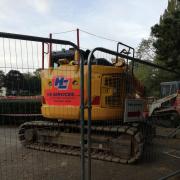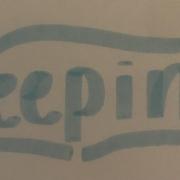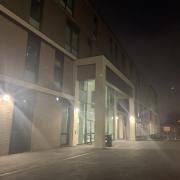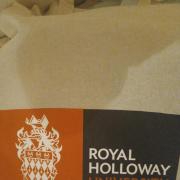
Jacqueline Luck, music teacher at Sutton High School, was kind enough to share the deeply moving story of her grandmother, Lela Black, who was a Holocaust survivor. Luck hoped it would offer a more personal insight, encouraging others to share their stories and to not let the Holocaust be forgotten.
Lela had been living in Athens with her husband Josef, and six-year-old daughter Marcelle, when somebody at the local market denounced them. Josef was captured and tortured until he confessed the location of his wife and child.
The family were transported in cattle trucks to Auschwitz in 1944, along with thousands of other Greek Jews. There was no space, food or water; the journey took days, and many did not survive. There was a constant sense of dread and uncertainty. Yet no one could foresee the suffering and pain they would have to endure.
On arrival at the gates of Auschwitz, everyone was forced into queues; one for men, one for women and one for children and the elderly. They were assured that the elderly would look after the children, whilst their parents worked. In reality, all children, disabled and elderly people were immediately gassed. This was the last time Lela ever saw her husband or daughter.
Lela endured unfathomable pain, both emotionally and physically. Each day they were forced to do manual labour, such as carrying heavy rocks and throwing dead bodies into huge pits. Over time, she faced the horrible realisation that her husband and child were both dead. They would push as many people as they could into these gas chambers, close the door and throw in the lethal gas, Zyklon B. Lela herself was put into these queues a total of three times; once, the doors closed right in front of her.
Despite the freezing conditions and minimal food, she survived almost a year in Auschwitz. And on January 27th, 1945, the camp was liberated by the Russians. Lela moved to London to stay with her cousins, soon meeting her second husband, Jack Benveniste, with whom she later had another baby. They named her Marcelle in remembrance of the child that she lost.
I was curious to learn how Lela talked about this nightmarish experience afterwards. Luck remembered how her grandmother ‘didn’t talk to anybody’, soon noticing that most people, including her family, ‘thought she was mad’. But by the 1960s, after the Nuremberg Trials were televised and the true horror of the Holocaust was officially revealed, everyone apologised for doubting her story.
However, Lela did record her testimony for the Steven Spielberg Trust, but found it emotionally draining to repeat the events of her ordeal. During the interviews, Luck recalled that Lela started having ‘nightmares again’ and that she would ‘wake up screaming, thinking she was back in Auschwitz.’ The only way to cope after losing her entire family, including her child, was ‘to tell it as a series of facts’. After a pause, Luck commented that the videos for her testimony were ‘a bit chilling. She’s very blank.’ Luck looked very distant for a moment, before making eye contact again with a small smile.
I asked how being in Auschwitz had affected Lela’s faith, curious to understand whether her belief grew stronger because essentially, she was saved. But Luck said it was the opposite, and that Lela would often reply to this question asking, ‘But where was God for everyone else? No, I don’t believe in God. Why would I?’.
This interview provided a rare and intimate understanding of the Holocaust. By appreciating Lela’s ordeal, we can begin to understand the magnitude of the courage and suffering of the other 6 million Jewish men, women and children.
Luck urged that it is ‘absolutely essential to discuss it [the Holocaust]’ and considers it her responsibly to share her grandmother’s experience, keeping her memory alive. Luck ended with a very relevant and thoughtful observation that really made an impression on me, she said; ‘awful things happen when people stay silent’.
Ishana Seward, Sutton High School































